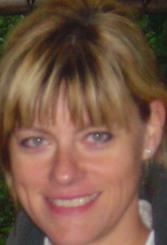2019 PARE Awardees
The Parapsychological Association furthers the scientific study of near death experiences by supporting the research of multi-disciplinary investigators around the globe.
Published by
 Parapsychological Association
Parapsychological Association
on
Saturday, September 28, 2019
Last Updated: Wednesday, October 9, 2019
The grants competition for the 2019 Parapsychological Association Research Endowment (PARE) has come to a close, and two grant proposals have been awarded. The Parapsychological Association (PA) will be providing funds to support research into two different projects related to near death experiences (NDEs). Each research initiative will explore areas that have far-reaching implications for furthering the science of parapsychology and understanding the nature of consciousness.
 Marianna Drinoczi is a clinical psychologist, psychosomatician, art therapist, and Ph.D. student at the University of Lorraine in France under the mentorship of Dr. Renaud Evrard. She obtained her MA degree in clinical psychology at the University of Lorraine in 2018 and is a student member of the Parapsychological Association. She also studied in the master class of the Jerusalem Studio School (JSS) in Jerusalem (2011-2014), a private school of fine arts.
Marianna Drinoczi is a clinical psychologist, psychosomatician, art therapist, and Ph.D. student at the University of Lorraine in France under the mentorship of Dr. Renaud Evrard. She obtained her MA degree in clinical psychology at the University of Lorraine in 2018 and is a student member of the Parapsychological Association. She also studied in the master class of the Jerusalem Studio School (JSS) in Jerusalem (2011-2014), a private school of fine arts.
Drinoczi’s research will investigate the integration of NDEs and its aftereffects in the lives of near death experiencers through creative artistic psychotherapy. A psychodynamic approach views NDEs as psychosomatic reactions to the surprising perception of the proximity of death. These psychosomatic reactions may have an adaptive function to prevent certain adverse effects of trauma. Artistic expression may help psychological integration for NDErs and provide greater potential for psychological growth and transformation. Drinoczi’s research may benefit creative art therapists and psychotherapists working with individuals who have had NDEs or other spiritually transformative experiences.
 Pascal Michael obtained his BSc from Aberdeen University in neuroscience and recently graduated with an MSc from University College London in Clinical Mental Health Sciences. He is currently a Ph.D. student at University of Greenwich with Dr. David Luke, researching psychedelic and spiritual experience, specifically the phenomenology and physiology of DMT and near-death experiences (NDEs).
Pascal Michael obtained his BSc from Aberdeen University in neuroscience and recently graduated with an MSc from University College London in Clinical Mental Health Sciences. He is currently a Ph.D. student at University of Greenwich with Dr. David Luke, researching psychedelic and spiritual experience, specifically the phenomenology and physiology of DMT and near-death experiences (NDEs).
Michael’s research will explore the neurophysiology and pharmacology of NDEs. He will be recruiting individuals who have survived a cardiac arrest and who have also had an NDE, along with individuals who have had no such associated experience as a control group. Volunteers will provide blood samples and as well as undergo an EEG session for the purpose of detecting baseline concentrations of the endogenous psychedelic Dimethyltryptamine (DMT), as well as investigating resting cortical excitation-inhibition imbalance and power spectra. Previous studies suggest that DMT models the near-death experience, and that DMT and high-frequency seizure-like activity occur in the dying mammalian brain. Michael hypothesizes that those who had a past NDE will evidence higher levels of DMT and cortical excitability.
Donations to support the mission of the PA, including the funding of research initiatives, can be made by contacting Executive Director Annalisa Ventola at annalisa@parapsych.org, or by visiting our Support Page.